UK encourages booster jabs, resists new virus restrictions

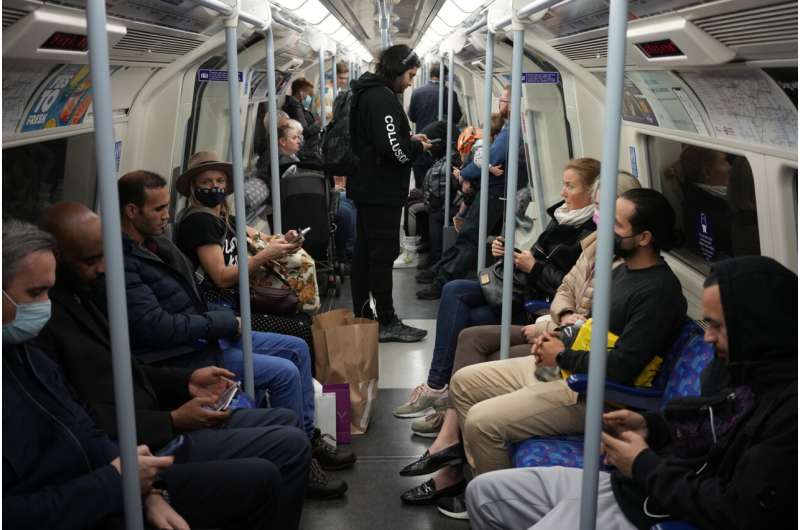
Under pressure from rising infections and worried health experts, the British government on Wednesday urged millions of people to get booster vaccine shots but resisted calls to reimpose coronavirus restrictions such as mandatory mask-wearing.
Health Secretary Sajid Javid said the government would “stay vigilant, preparing for all eventualities,” but would not trigger its “Plan B” of bringing back restrictions on daily life.
Britain is relying heavily on vaccines to keep the virus at bay during the fall and winter months. Almost 80% of people 12 and over in the U.K. have received two vaccine doses and millions are being offered a booster shot, including everyone over 50.
But critics say the booster campaign is moving more slowly than the virus. The U.K. recorded 49,139 new infections on Wednesday, by far the highest total in Europe, and cases are averaging more than 45,000 a day, up 17% from a week earlier.
Javid said cases “could go as high as 100,000 a day,” but insisted it was not yet time to reverse course.
“None of us want to go backwards now,” he said.
But Matthew Taylor, chief executive of the health care group the NHS Confederation, said Britain’s health system risked being overwhelmed unless more measures to slow the spread of COVID-19 are introduced now.
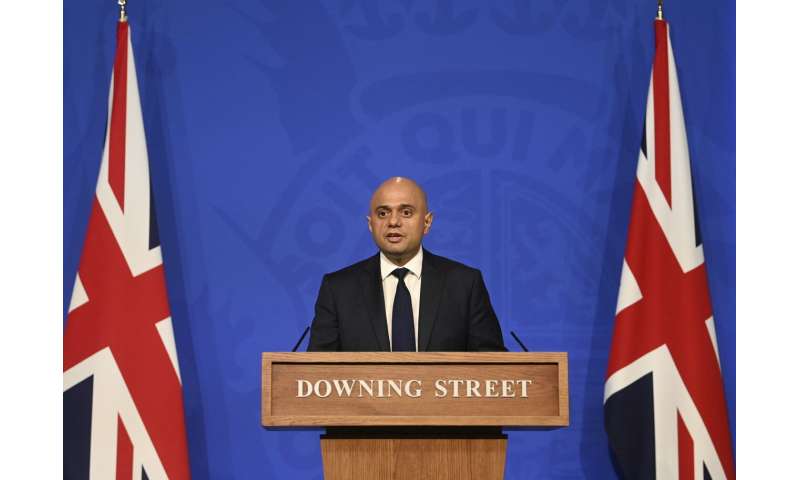
“It is time for the government to enact Plan B of its strategy without delay because without preemptive action, we risk stumbling into a winter crisis,” he said.
British Prime Minister Boris Johnson’s Conservative government lifted domestic coronavirus restrictions in July, including mandatory face coverings and social distancing. Nightclubs and other crowded venues were allowed to open at full capacity, and people were no longer advised to work from home.
Some scientists feared a big spike in coronavirus cases after the reopening. That didn’t occur, but infections remained stubbornly high and recently have begun to increase—especially among children, who largely remain unvaccinated.
Last week, the Office for National Statistics estimated that one in 60 people in England had the virus, one of the highest levels yet seen in Britain.
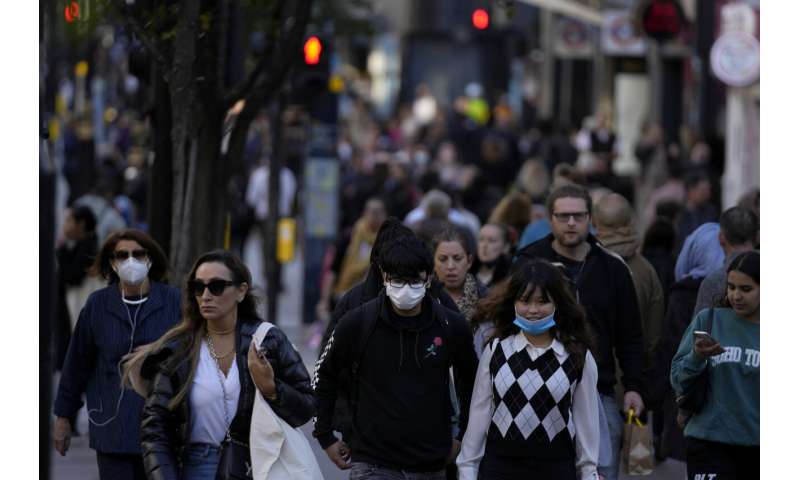
Hospitalizations and deaths are gradually rising, with deaths averaging 136 a day over the past week. Britain has recorded more than 138,000 coronavirus deaths, the highest total in Europe after Russia.
Against that backdrop, some feel that Britons have been too quick to return to pre-pandemic behavior. Masks and social distancing have all but vanished in most settings in England, including schools, although Scotland and other parts of the U.K. remain a bit more strict. Even in shops, where masks are recommended, and on the London transit network, where they are mandatory, adherence is patchy.
A plan to require proof of vaccination to attend nightclubs, concerts and other mass events in England was dropped amid opposition from lawmakers, though Scotland introduced a vaccine pass program this month.
Critics say the vaccination program—among the world’s speediest earlier this year—is moving too slowly. More 4 million people in Britain have had a booster, although half of those eligible have yet to receive their shot.
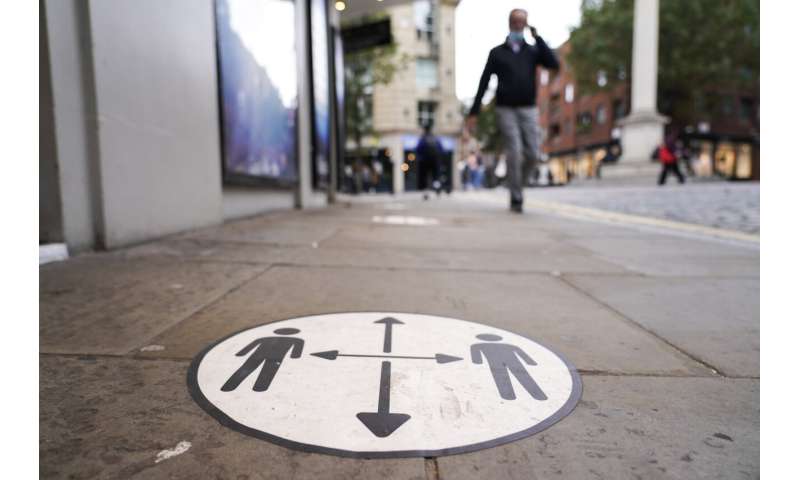
The U.K. also waited longer than the U.S. and many European nations to vaccinate children from 12-15, and only about 15% in that age group in England have had a shot since they became eligible last month.
The government says it will act to boost vaccination rates, with a new ad campaign and an increased number of sites where kids can receive their shots.
Javid also said the government had bought two antiviral drugs intended to prevent coronavirus infections or lesson the severity of disease—one developed by Pfizer and the other by Merk Sharp and Dohme. Neither has yet been approved by Britain’s medicines regulator, but Javid said he hoped they would be in use by the winter.
He also renewed calls for people to use caution by wearing face coverings and keeping their distance, though critics say such calls are bound to be ineffective unless they are backed by law.
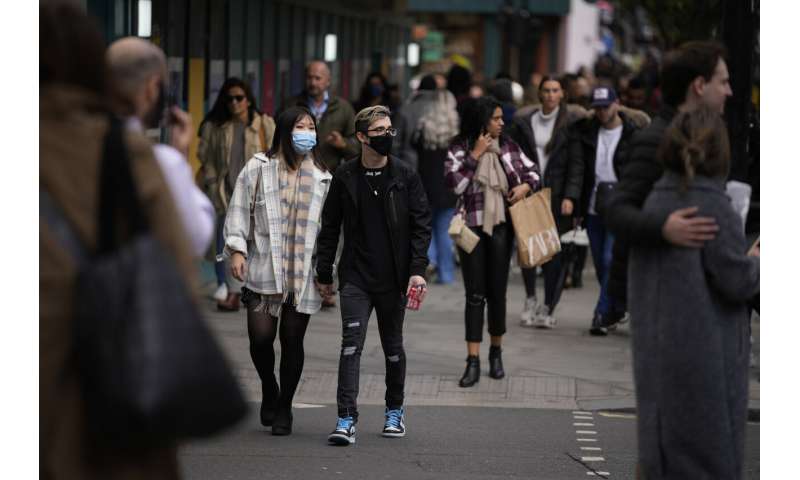
“COVID-19 cases are rising and winter is drawing closer,” said England’s Chief Medical Officer, Chris Whitty. “Ventilation, masks in crowded indoor spaces and hand-washing remain important.”
Source: Read Full Article




